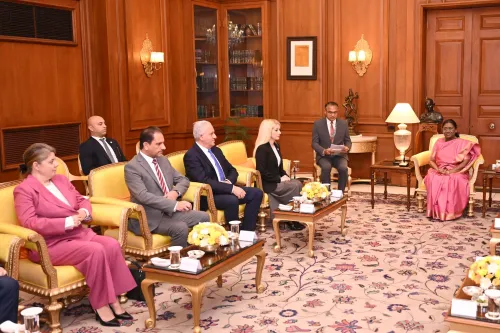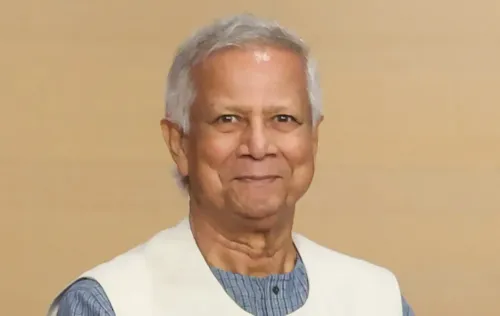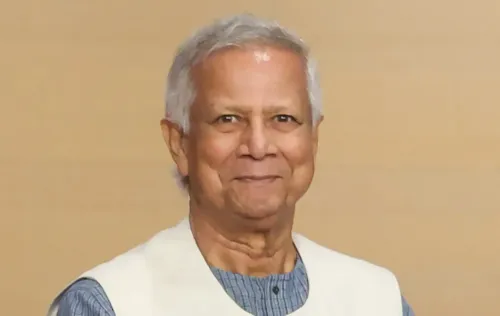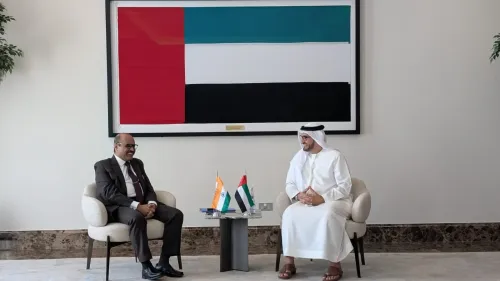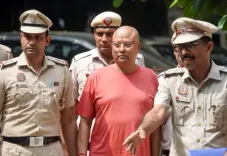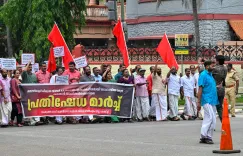Is Bangladesh's Extradition Request for Sheikh Hasina Under Review?
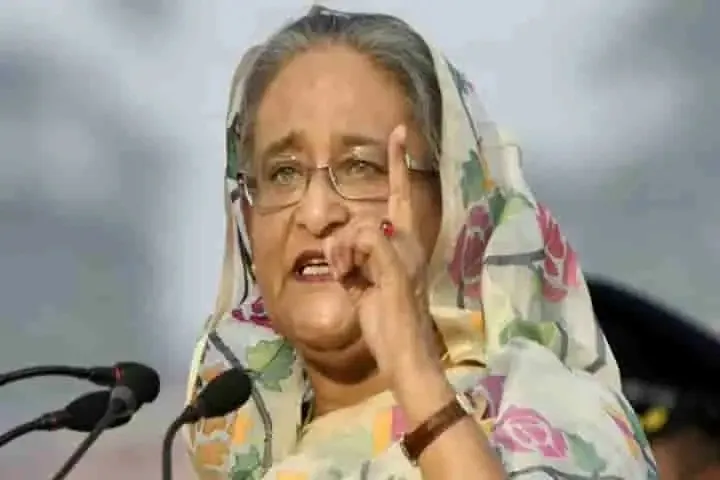
Synopsis
Key Takeaways
- India has received an extradition request for Sheikh Hasina from Bangladesh.
- The request is currently under judicial review.
- Sheikh Hasina was sentenced to death by the ICT for crimes against humanity.
- India emphasizes its commitment to peace and stability in the region.
- The political implications of this case could be significant for both nations.
New Delhi, Nov 26 (NationPress) On Wednesday, India confirmed receipt of the extradition request from Dhaka concerning Bangladesh's former Prime Minister Sheikh Hasina. This request is currently under review as part of ongoing judicial and internal legal procedures.
The spokesperson for the Ministry of External Affairs (MEA), Randhir Jaiswal, reiterated India's dedication to the well-being of the Bangladeshi populace, emphasizing values such as peace, democracy, stability, and inclusion.
During a weekly media briefing in New Delhi, when questioned about Bangladesh's extradition plea for Sheikh Hasina, Jaiswal stated, "Yes, we have received the request, and it is being assessed as part of ongoing judicial and internal legal processes. We remain devoted to the best interests of the people of Bangladesh, which include peace, democracy, inclusion, and stability, and will continue to engage constructively with all relevant parties."
Bangladesh had reached out to India seeking the extradition of Sheikh Hasina following a recent ruling from the International Crimes Tribunal (ICT). Bangladesh's Foreign Affairs Adviser, Touhid Hossain, disclosed this diplomatic development on Sunday but did not provide further details, according to the United News of Bangladesh (UNB).
On November 17, the ICT sentenced Sheikh Hasina to death after finding her guilty of crimes against humanity linked to the protests in July 2024.
India had previously acknowledged the verdict from the International Crimes Tribunal concerning former Prime Minister Hasina and reaffirmed its commitment to uphold the interests of the neighboring nation, particularly regarding peace, democracy, inclusion, and stability.
A statement from the MEA on November 17 read, "As a close neighbor, India is dedicated to the best interests of the Bangladeshi populace, including peace, democracy, inclusion, and stability. We will always engage constructively with all stakeholders to that end."
The ICT also convicted two of Hasina's senior aides, sentencing former Home Minister Asaduzzaman Khan Kamal to death and former Inspector General of Police, Chowdhury Abdullah Al-Mamun, who testified for the state, to five years in prison.
In response to the controversial ICT verdict, Hasina claimed that the judgment stemmed from a "rigged tribunal" led by the unelected interim government under Muhammad Yunus, which lacks a democratic mandate. She criticized the ruling as biased and politically motivated.
Sheikh Hasina remarked, "In their distasteful call for the death penalty, they reveal the blatant and violent intentions of extremist figures within the interim government to eliminate Bangladesh’s last elected Prime Minister and to undermine the Awami League as a political entity. Millions of Bangladeshis suffering under the chaotic, violent, and socially regressive leadership of Dr. Mohammad Yunus will not be deceived by this attempt to deprive them of their democratic rights."
"They can see that the trials conducted by the so-called International Crimes Tribunal (ICT) were never intended to deliver justice or provide any genuine insight into the events of July and August 2025. Their purpose was to scapegoat the Awami League and distract the world's attention from the failures of Dr. Yunus and his ministers," she added.

